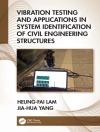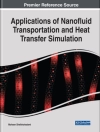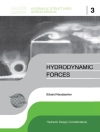This volume comprises the select proceedings of Fi MPART 2015. The volume covers advances in major areas of materials research under one umbrella. This volume covers all aspects of materials research, processing, fabrication, structure/property evaluation, applications of ferrous, non-ferrous, ceramic, polymeric materials and composites including biomaterials, materials for energy, fuel cells/hydrogen storage technologies, batteries, super-capacitors, nano-materials for energy and structural applications, aerospace structural metallic materials, bulk metallic glasses and other advanced materials. The book will be useful to researchers, students, and professional working in areas related to materials innovation and applications.
Cuprins
1. String-Like Fiber Dust Occurrence in Crush Cutting of Stacked Liner Boards.- 2. Phase Transformation of Amorphous Rice Husk Silica.- 3. Analysis of Nano/Micro Bimodal SUS316L Powder Behavior.- 4. Tensile Deformation Behavior of Al-Rich Ferritic Steels for Advanced Light Water Reactors.- 5. A Study on Precipitation Behaviour of A356 Alloy by Ultrasonic Velocity Measurements.- 6. Synthesis of Superhard Lightweight Composites and Improvement of their Properties via Chemical Processing.- 7. Structural and Chemical Variations Induced by Thermomechanical Cycling in Shape Memory Actuators.- 8. Enhancement of Thermal Conductivity on Ternary Eutectic Fatty Acid as Phase Change Material (PCM) by Various Treated Exfoliated Graphite Nanoplatelets (XGNP).- 9. Elements Diffusion in Brazing Seam of High Volume Fraction Sicp/6063Al Matrix Composites.- 10. Functionally Graded Cemented Carbides Elaboration by Imbibition Process €“ Better Understanding of Liquid Migration and Homogenization Mechanisms for an Improved Process.- 11. Water Analogy Experiment on The Multi-Concentration Pouring Process of A 585 Ton Steel Ingot.- 12. Ferroelectric (Hf, Zr)O2 Thin Films for High Density Non-Volatile Memories.- 13. Advanced System for Nano-Fabrication and Nanomanipulation Based on Shape Memory Alloy.- 14. Synthesis of Aluminium-Graphene Nanocomposite Using Spark Plasma Sintering.- 15. Time-Lapse Correlative 3D Imaging Applied To The Corrosion Study of Az31 Mg Alloy in A Saline Environment.- 16. Welding and Heat Treatment Behaviour of T23 (2.25Cr-1.6W-V-Nb) Steel Tubes in Power Plant Applications.- 17. Solar Performance Analysis of Zrox/Zrc-Zrn/Zr/Ss Spectrally Selective Coating Under Extreme Thermal Environment.- 18. A Comprehensive Study of Hydrogen Redistribution and Embrittlement Prevention in Ferrous Alloys.- 19. Advances in Small Specimen Testing Methods for Characterising Tensile, Creep and Fracture Properties of Materials.- 20. An Approach To Develop Hansel-Spittel Constitutive Equation During ingot Breakdown Operation of Low Alloy Steels.- 21. Development of An Artificial Neural Network Model for CO2 Corrosion Prediction.- 22. Study on The Adhesive Joint Strength of 2060-T8 Al-Li Alloy Single Lap Joint With Different Adhesives.- 23. Mechanical Properties of Ti2Alnb and Ti2Alzr intermetallics: A First Principles Study.- 24. Effects of Micro-Ti Addition on Improving Hot Ductility of Nb-Bearing Ultra High Strength Steels.- 25. Effect of Transition Metals on Thermal Stability of Al‒Si Cast Alloys.- 26. Comperative Anaysis of The Fabrication Methods and Structure of The Selected Cnts-Nps Nanocomposites.- 27. Structure and Properties of The Skeleton Microporous Materials With Coatings inside The Pores for Medical and Dental Applications.- 28. Twip Mechanism in Processing of High-Manganese Austenitic Steel.- 29. Impact Behaviour of Super Duplex Stainless Steel Weldments At Sub-Zero Temperatures.- 30. Microstructural Evolution and Strengthening of Stainless Steels During Cold Rolling.- 31. influence of Nickel on The Properties of P91 Flux Cored Wire Weld Metal.- 32. Effect of Cross €“ Linking Agent on The Thermo €“ Mechanical Properties of Acrylate Shape Memory Polymer Network.- 33. Exchange Bias and interfacial Magnetic Phenomena in Mechanically Milled Ferromagnetic/Antiferromagnetic Nanocomposites.- 34. Effect of Alloying Additions on The Properties Af-Fecting Shape Memory Properties of Cu-12.5Al-5Mn Alloy.- 35. Preparation of Spherical Fine Metal Powder by Hybrid Water–Gas Atomization.
Despre autor
M. Muruganant is a Commonwealth fellow and a doctorate from University of Cambridge, UK. Having worked with some of the most prestigious research institutes across the globe, his contributions in the field of structure-property correlation, understanding of the components of high temperature creep strength of ferritic steels have benefitted the scientific community. His contributions have benefitted corporate giants like ABB Sweden, Siemens Westinghouse corporation USA, and ESAB Sweden. Prof. Muruganant has a great passion for research, academia and technology. His contributions have been recognized through various publications in peer-reviewed Journals, invitation for keynote lectures in premier conferences across the globe. His models for structure-property correlation were the first to world to predict properties of steel as required by commercial standards. He has implemented modules through computational methods that has saved several million dollars in steel plants. He isthe founder Chairman of the major International Conferences series in Materials like Fi MPART (Frontiers in Materials Processing, Applications, Research and Technology) and Fi NSTA (Frontiers in Nanoscience, Technology and Applications). He is currently serving as the Ministry of Steel Chair Professor having selected by the Ministry of Steel and Mines, Govt. of India as one of the Chair Professors and contributes from PSG College of Technology a 100 year old institute whose Design data book is used by all engineering fabricators in India and elsewhere. It is worthy to note that he is the youngest Chair Professors in the history of this Chair position – a befitting reward for his sustained and positive contribution to education, research and industries alike. He is also the director of the Steel Academics, Research and Consultancy Center (SARCC). He is an expert consultant selected by Intota experts USA. He is the Editor in Chief of Steel communications.
Ali Chirazi Obtained an MEng in applied physics with specialization in nuclear and atomic physics from University of Brussels in Belgium in 1995, followed by a year-long course in Ergology, at Ergology business school in Brussels, Belgium. He obtained his Ph D in Multiscale Computational Materials Science applied to light alloy in the year 2000 from University of Greenwich in London, UK. Conducted a Post doc from 2000 to 2002, at Imperial College materials department in London UK, combining Image-based characterization techniques with multi-physics materials simulation for property predictions, applied to aluminum alloys. He served as Research Scientist at “Institute for Condensed Matter Chemistry of Bordeaux” (ICMCB-CNRS), from 2002 to 2014, where he was responsible for 3D image based characterization techniques. He was the manager of the “Henry Moseley X-Ray Imaging Facility” (HMXIF) in Manchester, UK, from 2014 to 2016, heading research in 4D-Image based techniques combined with computational physics in materials science. He is currently Senior Materials Scientist in the Materials & Structural Analysis division (Formerly FEI) within “Thermo Fisher Scientific”, Bordeaux, France, working on multi-modal and multiscale correlative workflows in materials science.
Baldev Raj has rendered yeoman service to the Department of Atomic Energy over a 42-year period until 2011. As Distinguished Scientist and Director, Indira Gandhi Centre of Atomic Research, Kalpakkam, he galvanized a whole community of staff, scientists and engineers for advancing several challenging technologies, especially those related to the fast breeder test reactor (FBTR) and the prototype fast breeder reactor (PFBR). He has nurtured and grown excellent schools in nuclear materials and mechanics, non-destructive evaluation, corrosion, welding, separation sciences & technology and robotics & automation. These schools have delivered science based technological solutions to strategic sectors, industries and have created strong groups in leading educational institutions. His unique accomplishment has been breaking barriers between academia-research and research-industry in order to realize tangible and significant outcomes in high technology domains. Dr. Baldev Raj has played a pioneering role in mastering the technology of complex post-irradiation examination (PIE) to achieve a burn up of 165 GWd/tonne of Pu-rich carbide. Dr.Raj has pioneered application of NDE for basic research using acoustic and electromagnetic techniques in a variety of materials and components. He is also responsible for realising societal applications of NDE in areas related to cultural heritage and medical diagnosis. His widely acclaimed contributions relate to understanding deformation using acoustic and magnetic Barkhausen methods, studies on stability and functional characterization of ferrofluids, corrosion mechanisms and specific sensors for high sensitivity and relevant measurements in a wide spectrum of technologies. His contributions to sodium science, materials development for fast spectrum and fusion reactors, structural mechanics and integrity of high performance components, safety of sodium cooled fast reactors, reprocessing of unique Pu-rich carbide fuel, etc have earned for India a leadership position in these fields in the world. He has used knowledge thus gained to address technology-intensive problems in aerospace and defence. He was elected President of International Committee on NDT in 1992. He is also Past President of The Indian Institution of Metals, Indian Institution of Welding and Indian Society of NDT. He is currently President, International Institute of Welding, President, Indian National Academy of Engineering and President-Research PSG Institutions, Coimbatore. Dr. Baldev Raj is a Fellow of Indian National Science Academy, Indian Academy of Sciences, National Academy of Sciences, India and Indian National Academy of Engineering, The Third World Academy of Sciences, German Academy of Sciences, International Nuclear Energy Academy and Academia NDT, International. He is Hon. Fellow, International Medical Sciences Academy. Author of more than 800 publications in refereed journals & books, 60 books, including special journal volumes, contributions to encyclopedia and handbooks, as well as owner of 21 patents, he has been recognized by way of awards, honours, plenary and keynote talks, editorial positions and assignments in esteemed national and international fora in more than 30 countries. He is editor-in-chief of three series of books. He has been conferred Distinguished Alumnus Award of Indian Institute of Science, Distinguished Materials Scientist Award of Materials Research Society of India, National Metallurgist Award of Ministry of Steel, Government of India and Presidential honour Padma Shri. Above all he has interacted with thousands of scientists and mentored hundreds of children, students, scientists and technologists and has inspiredthem to carry out scientific and technical activities with a high degree of professionalism and, at the same time, following exemplary ethical practices.












